
So many women are experiencing symptoms that could be caused by thyroid hormone imbalances – fatigue, cold hands and feet, depression and low mood, and weight gain or difficulty losing weight.
If so many women have these symptoms, then why are half of all people with thyroid disease walking around undiagnosed? And why are these people suffering unnecessarily??
One of the major reasons, is the problems with the current conventional approach to thyroid testing.
Conventional Thyroid Testing
The traditional way of testing for a thyroid imbalance is to run a TSH – thyroid stimulating hormone. TSH is a hormone produced by the pituitary gland in your brain, that stimulates your thyroid to produce active hormones. If TSH is too high, then your thyroid isn’t responding adequately and you have hypothyroidism, if TSH is too low, then your thyroid is overactive and you have hyperthyroidism.
And that is where it ends. For most people, a TSH is all they will receive to screen for thyroid disease.
The Problem with TSH
The main problem with TSH is that the range of “normal” varies between labs, and most scientists and clinicians can’t agree on what a “normal” range actually is! In Ontario, where I practice, most labs accept a range of 0.30-5.00mIU/L. However, there is debate as to whether this actually representative of a normal range, and it certainly isn’t the optimal range.
Many experts have suggested that the normal range should be narrowed to 0.30-3.00mIU/L, while others suggest that lower than 2.50mIU/L is an “optimal” range.
In practice, I find that many woman have symptoms of hypothyroidism when their TSH rises above a 3.00, and many of them benefit from supporting their thyroid at this range. However, most doctors don’t offer any treatments until women have a TSH higher than 5.00-10.00mIU/L.
An important note – women who are trying to conceive should aim to keep their TSH between a 0.30-2.50mIU/L to reduce the risk of miscarriage.
Beyond TSH
The biggest obstacle in diagnosing thyroid imbalances may be TSH and the “normal” range, but another major issue is the lack of comprehensive testing. These are the tests that I suggest all women have done if they suspect (or know!) they have a thyroid hormone imbalance.
Free T4 – Thyroxine, more commonly known as T4 is the dominant thyroid produced by your thyroid gland. Most of it travels through your body bound to a protein. Free T4 gives us a measure of your available thyroid hormone and low levels can contribute to hypothyroid symptoms.
Free T3 – Triiodothyronine, or T3, is the active, energizing form of thyroid hormone produced in your thyroid, as well as throughout your body through conversion of T4. Low free T3 is associated with hypothyroidism, and especially fatigue.
Anti-TPO – Anti-thyroid peroxidase is an autoimmune antibody, a compound made by your immune system that attacks and destroys your thyroid tissue. Elevations in anti-TPO are strongly associated with Hashimoto’s thyroiditis, but also in post-partum thyroiditis and Graves’ disease.
Anti-TG – Anti-thyroglobulin is another autoimmune antibody that damages and destroys the thyroid gland. Elevations in this antibody are also associated with Hashimoto’s thyroiditis.
TSH-R Ab – TSH receptor antibodies are the third of the autoimmune antibodies we look at when fully assessing the thyroid. These antibodies result in the destruction of TSH receptors, which leads the thyroid to overproduce thyroid hormones, resulting in hyperthyroidism and Graves’ disease.
Developing a Plan
Getting an appropriate diagnosis of a thyroid imbalance can be a challenge. Starting with comprehensive thyroid testing is an essential first step. But treatment needs to be individualized to each woman based on her symptoms, lifestyle, age, and laboratory results. It is not as simple as “Synthroid for All!” If you are not sure your thyroid has been appropriately assessed, or treated, book a 15 minute phone call with me to talk it out. I’m here for you, and all your hormone needs.
Disclaimer
The advice provided in this article is for informational purposes only. It is meant to augment and not replace consultation with a licensed health care provider. Consultation with a Naturopathic Doctor or other primary care provider is recommended for anyone suffering from a health problem.




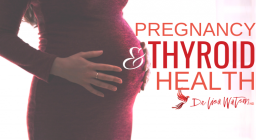
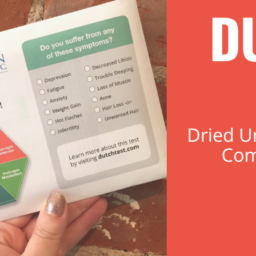
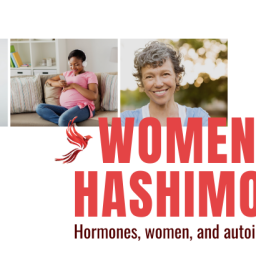
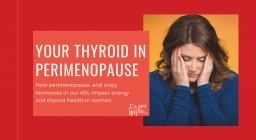
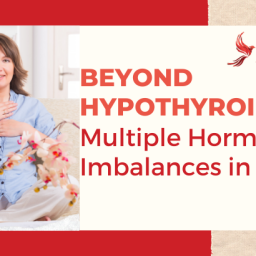


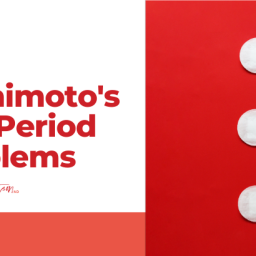

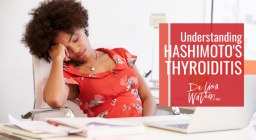
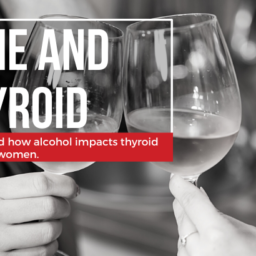


Love this post! I’m now 62 and have been complaining that I’m so fatigued which began about 10 years ago. During the last 5 years and especially last 3, I’m pretty much done after 3 hours of any type of work. Yes, I’m in menopause, suffer depression and anxiety for last 30 years but this is so debilataing.